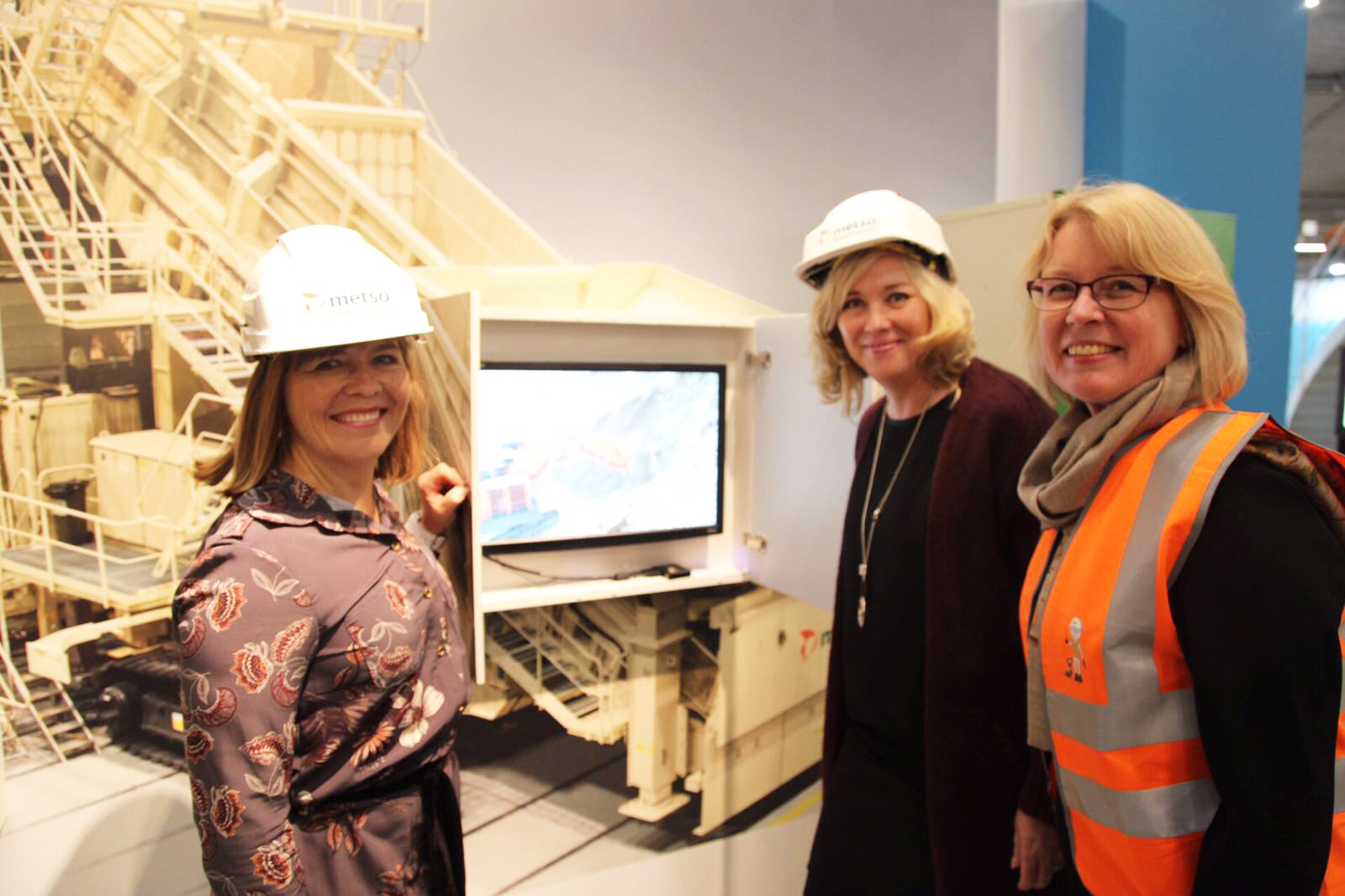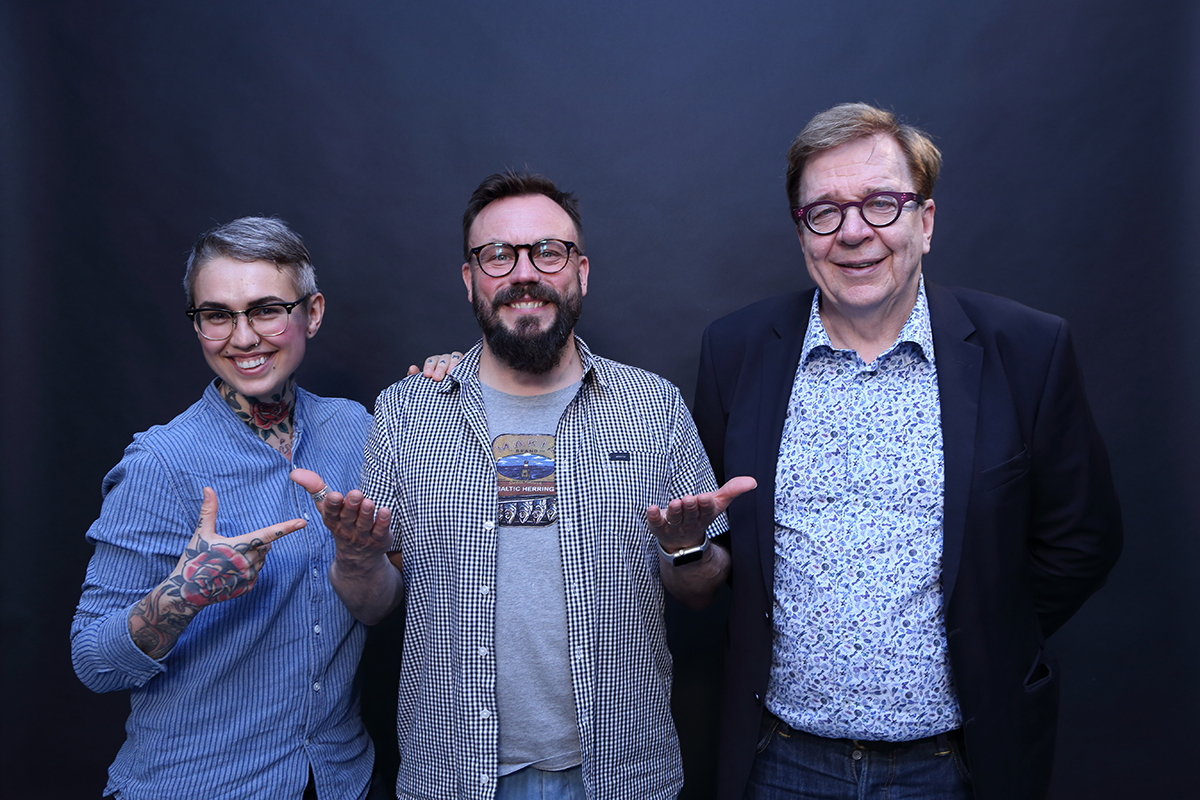In the second episode of Metso’s Studio Planet podcast series, Markku Ollikainen, Professor of Environmental and Resource Economics and the chair of the Finnish Climate Change Panel, and Natalia Salmela, a media personality and a lifestyle blogger, discussed whether Sitra's target is even possible.
“It’s possible. Sweden has already reached the target: Swedish emissions amount to around one metric ton per person. This is because the Swedish economic structure differs from the Finnish one, their energy production includes plenty of hydro- and nuclear power, and Sweden has taken significant action to reduce its climate emissions. Naturally, the population must always be taken into account in any ‘per person’ calculation, and the population of Sweden is twice the size of the Finnish population,” Ollikainen explains.
What kind of consumers are you in your own opinion? Has climate change influenced your consumption behavior; have you given up something, for example?
“I feel that as a consumer, I’m a realistic hedonist. I use my income to buy things that I enjoy, but luckily for the planet, the things that I enjoy have changed a lot over the years. I almost completely stopped buying new things several years ago when people started to apply the KonMari principle to their belongings. My T-shirt pile is significantly smaller than it used to be,” Salmela says.
“Food, living, and transport are the things that have concrete effects. I have been able to significantly decrease my emissions from living and transport. I’m skeptical when it comes to food: as long as the production processes pollute, food has a relatively minor impact,” Ollikainen says.
Do you feel fine about your own actions, or do you feel they are inadequate?
“I feel fine. In my case, the campfires I make when trekking in the north are a source of remorse, because they speed up the release of carbon,” Ollikainen says.
When a change is ongoing, consumption habits are discussed. What are your thoughts on this new kind of approach where consumption can be compensated?
“I came across the compensation approach a couple of years ago. I couldn’t even start to fathom how people could ‘nullify’ their flights by paying a little extra. I advocate skipping one flight or not buying something instead of going on as if nothing has happened and just paying a little more for what you’re doing,” Salmela says.
“The compensation works if it’s part of the mitigation hierarchy. If consumers choose their behavior by trying to avoid emissions and try to find ways to mitigate the emissions whenever they cause them, we are talking about a change in consumption behavior. We can compensate for the part we cannot eliminate by our own actions,” Ollikainen explains.
What, if anything, should we give up due to climate change?
“Above all, we should give up something for the reason that the Western life is already maximal – we have too much of everything. Most people suffer more from lack of free time than from not having enough things to own or events to go to,” Salmela sums up.
“Most of us can give up traffic emissions, at least. It’s one of the easiest options, at least for those who live in urban areas,” Ollikainen says.
Natalia, are people who read your blog interested in consumption like before, or have you seen any indication of consumption being a declining trend?
“I have been writing a blog full-time for the past eight years, and two major changes have taken place during that time. The first was the introduction of commercialism in blogging. The second came from the readers: we must discuss climate issues,” Salmela says.
Markku, does research support this observation from the field?
“Yes, it does. The views of Finnish citizens on climate issues are monitored every few years. A change could be observed in the survey that was carried out last year: some 30–40% of the respondents had made decisions that increased their recycling, reduced the amount of goods purchased, and reduced emissions in various ways,” Ollikainen lists.
Industry has a major impact on how climate change is being tackled all around the world. What kind of innovations that reduce emissions are already out there and which ones are you most eagerly expecting?
“All recycling solutions are such innovations, such as recycled fuels. I’m most eagerly expecting bold solutions, such as the attempt in Sweden to eradicate one of the most difficult global problems, i.e. process emissions from the manufacture of iron. They have started to manufacture hydrogen with renewable energy to change the iron manufacturing process into a hydrogen-based process which would produce nearly zero emissions,” Ollikainen says.
What kind of a planet would you like to leave for the future generations and how can we achieve this?
“In twenty to thirty years, humankind will probably face major revolutions of transport, energy, and the production of food, which will significantly change the nature of the world and our operating methods. As a result of these changes, we will be able to leave behind a significant plot of land that will revitalize biodiversity. I would like to witness that,” Ollikainen says.
“Let’s leave behind a smarter planet,” Salmela sums up.
Produced by us, Studio Planet is a five-part podcast series on sustainable society where Finnish experts and influencers discuss topical issues. The series aims to contribute to the discussion with consumers on how industry can be involved in sustainable development.
Read the full series:
Climate anxiety can be alleviated by becoming part of the solution
Is mining in space realistic and are asteroids a threat or a crock of gold for the world?
Climate change and consumption habits - what should we give up?

